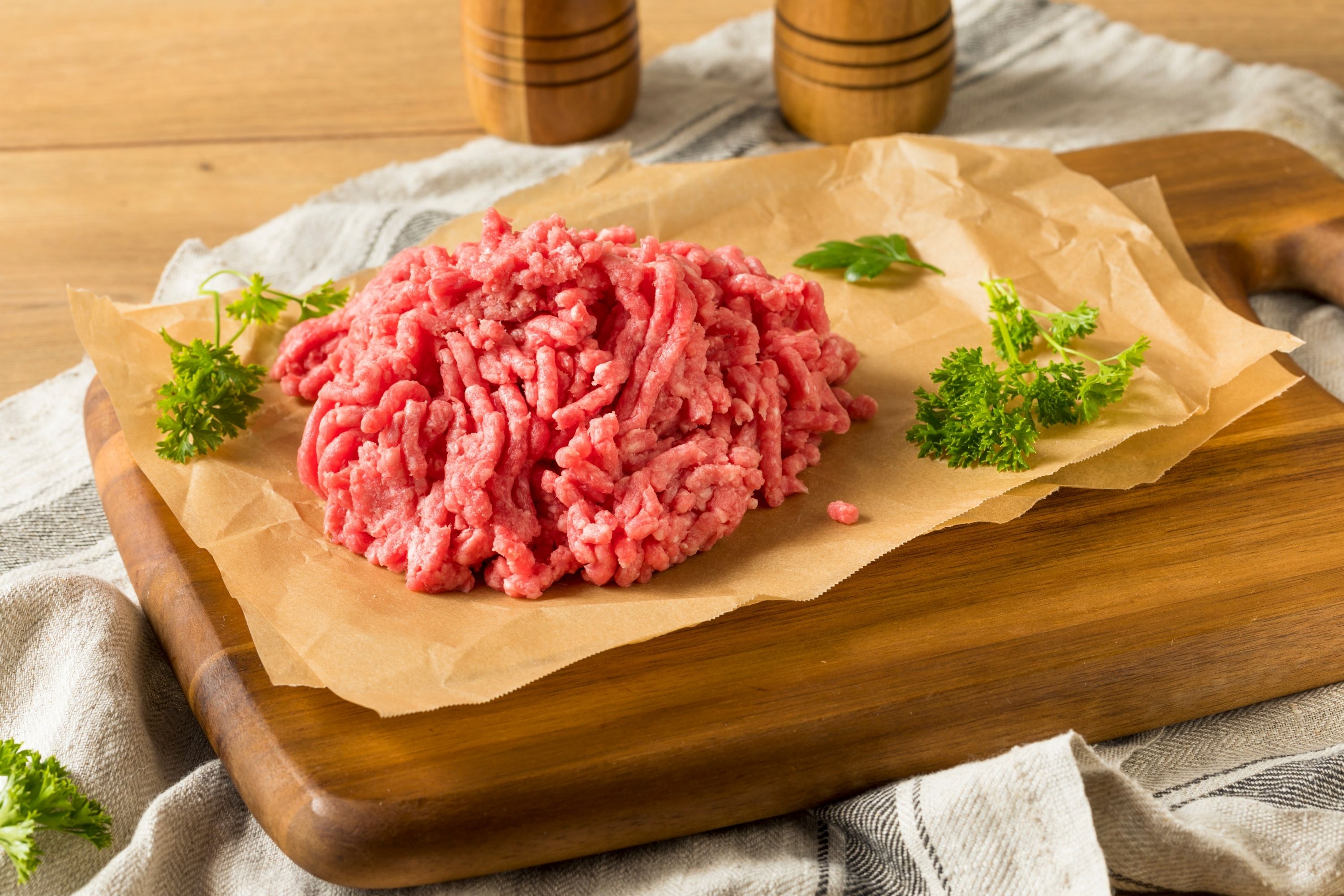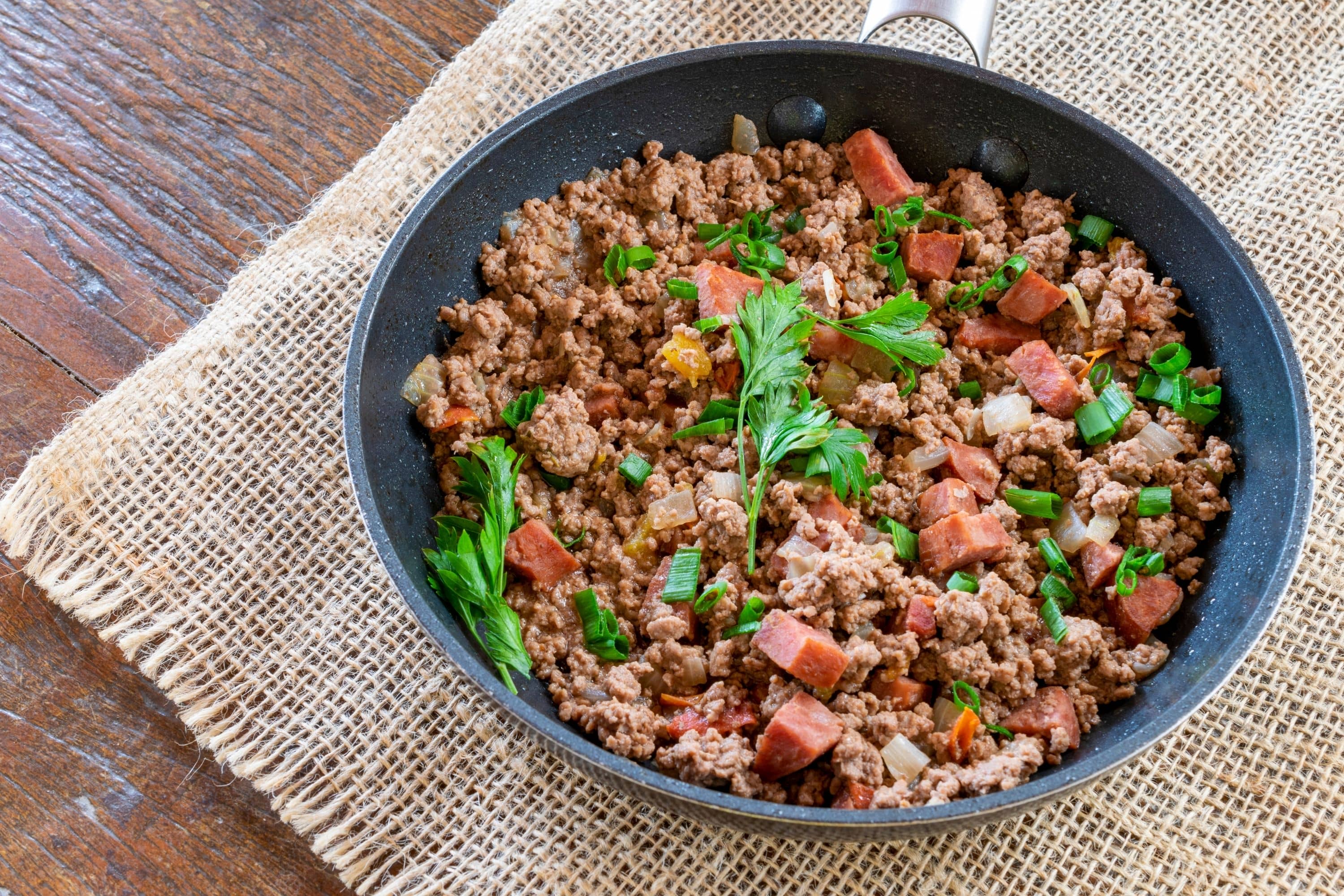We all know very well that meaty foods must be properly and thoroughly cooked all the way through in order to be safe to consume. Undercooked meat is not only less delicious, it can also be a health hazard and a source of contaminants that may lead to food poisoning and various diseases.
Fortunately, there are a few ways you can recognize that your meaty meal is not properly cooked. Today we will tell you whether an undercooked burger is safe to eat, what can be the results of consuming improperly cooked meaty foods, and how pink meat shall be to be considered consumable.
How to Tell If Ground Beef Is Cooked?
When we cook meat, it is important to recognize when it becomes properly roasted, fried, or grilled. And we are pretty sure that you have seen that: when you cook some ground beef cutlets you have made for burgers, then cut one of them and see that the meat is still pink inside! Does it mean that it is undercooked?
You will definitely think that it is, however, we would recommend you not hurry too much. See, most of us are used to the idea that properly cooked meat must be brown inside. And if you see any pink areas, this is the obvious sign that the flesh is still not cooked enough.
Nevertheless, according to the USDA data, color can not be considered a reliable sign of doneness when we cook meat. In quite many cases, ground beef may still be pink inside even when it is already cooked and can be safely consumed! And on the contrary, brown color is not always an indicator of your meaty food being ready to enjoy.
So how do we know for sure whether the meat we have just cooked is properly prepared? The answer is simple: we must use a meat thermometer! This device will tell us exactly whether our beef or other meat has reached the required temperature or not.
Now, let us remind you under what conditions ground beef (just like any other type of meat or poultry) can be considered thoroughly cooked. As long as the color is not a reliable sign anymore, we must only rely on temperature. So if our piece of meat has reached the level of 160 degrees Fahrenheit, we can be absolutely sure that it is safe to eat even though it is still pinkish inside when we cut it.
And again, even if your meat is already brown but you see that the thermometer has not reached the level of 160 degrees yet, we would not recommend you take it out of the oven!
Of course, many of you may note that using a meat thermometer is ok when you cook in the oven. But what if you are going to grill your beef or fry it? Absolutely the same way! To take an internal temp of the meat cooked for burgers on grill or in a frying pan, insert the thermometer into the meaty cutlet and wait until it reaches the required mark. Is it 160 degrees? Great, then it is time to enjoy it!

How to Tell That You Have Undercooked Ground Beef?
The pink color of meat does not always show that it is unsafe to eat. However, there are a few obvious signs that can tell you the ground beef is better to be cooked a little bit longer.
- If the meat is still red
- If the meat has been cooked for less than fifteen minutes
- When ground beef has not turned brown yet
When cooking meaty burgers, make sure you cook the meat thoroughly. Otherwise, consuming improperly cooked or undercooked beef can result in quite severe food poisoning or lead to foodborne diseases!

How to Make Use Of a Meat Thermometer Properly On Beef Cutlets?
When making burgers, the optimal way of figuring out the level of their doneness is to use a meat thermometer. However, quite many people wonder how to do it right since most of us are more used to applying this device when cooking meat chops.
However, it can also be successfully and easily used on meaty cutlets! For this purpose, we recommend you use an instant-read device, either a round-dial or digital, since they will give you quick and precise results. However, do keep in mind that these devices must never be used in the oven! To take the temperature with them, use the thermometer toward the end of the minimum cooking time and leave it in the meat for only fifteen seconds!
Depending on what type of meat you are cooking, the use of thermometer will vary:
- For meat chops, steaks, and roasts, insert the device into the center at the thickest part, away from bone, fat, and gristle.
- For ground meat, insert the thermometer into the thickest part of the cutlet.
- When cooking a whole poultry, insert it into the inner thigh area near the breast but avoid touching the bone!
- For taking the temperature of thin slices, insert the device sideways.
It is also good to know what minimal temperature is considered normal and safe for different types of meat to be able to figure out whether yours is cooked or not.
[table id=160 /]
Why Can Eating Undercooked Beef Be Dangerous?
Everyone knows that eating undercooked meat is not safe and can result in different foodborne diseases. This can happen because, when meat is not thoroughly fried or roasted, it still contains pathogens and bacteria that may lead to long-term health problems.
And we can name you five most common health issues that one can get when consuming steaks or other meaty foods that were not properly cooked.
- Salmonellosis
- Listeriosis
- E.coli food poisoning
- Parasitic infections
- Campylobacteriosis
Each of these diseases can have quite a nasty impact on your health. For instance, salmonellosis develops after consuming undercooked beef and leads to abdominal cramps, fever, and diarrhea. When a person suffers from listeriosis, he or she may experience body aches, nausea, and fever.
When infected with E.coli or with campylobacteriosis, a person suffers from serious food poisoning and stomach upset. And all of these diseases come from eating improperly cooked meat!
So if you ate a burger that seemed not cooked well enough, and you developed undercooked burger symptoms that usually appear after one or two days of consuming the meat, visit a doctor to get proper treatment!

How to Store Ground Beef If You Bought Too Much?
So, imagine you wanted homemade burgers so badly that you rushed to the nearest supermarket and grabbed a batch of ground beef! You brought it home, prepared cutlets, made burgers, and…well, you realised that you still have plenty of meat left!
In this case, the most reasonable and obvious decision will be to store it until the next use. However, this is the moment when quite many home chefs stumble upon the same issue: where and how shall leftover beef be kept to last longer?
We can suggest you a couple of variants for the raw meat and for the cooked leftovers (that if you could not hold back and fried it all!).
- To make raw ground beef last longer and avoid spoilage, we recommend you freeze it right after purchasing. Like this, the meat will remain fresh and safe to eat later whenever you need it.
- If you are going to use it soon (within one or two days), feel free to refrigerate your ground beef at 40 degrees Fahrenheit or below.
- To store cooked ground beef leftovers, let it cool down and keep it in the airtight container in the fridge no longer than for three or four days.
It is recommended that you store raw ground beef wrapped in a heavy-duty plastic wrap, aluminum foil, or freezer paper. But plastic bags that are frost-friendly will also work well. And remember to make use of it within four months since if stored longer, your beef will start degrading even when being chilled!

How to Handle Ground Beef Safely?
Meat must be treated carefully when you are going to cook it. As you already know, this product can be a source of various bacteria, this is why following simple precaution measures is a must if you want to cook it not just delicious but also safe for you and your family or guests!
This is why be keen when handling ground beef in particular from shopping throughout storage to cooking to avoid the risk of foodborne disease.
- Never leave ground beef at room temperature.
- Label ground beef before freezing to not over store it.
- Seal it tightly before refrigerating/freezing to avoid cross-contamination.
- Wash your hands, utensils, and surfaces that come into contact with meat.
- Thaw it either in the fridge or in your microwave.
- Never refreeze defrosted ground beef!
- Cook it to the internal temperature of 160F.
When following these simple recommendations, you will be sure that the food you cook is both tasty and safe to consume. Also, you will always know that the meat kept refrigerated is fresh and ready to use.

So this was all that we wanted to share with you on a topic of ground beef cooking and storage. Now you know that the color of beef is not always the sign of its doneness, and that the pinky beef can be safe to consume whilst brown burgers may still be unsafe to eat.
And since we also shared with you a few recommendations on how to define that beef is properly cooked and even suggested what meat thermometers to use for this, you can now be absolutely sure that any meat you cook will be safe to consume.
Take care!
[wp-faq-schema title=”Frequently Asked Questions”]

How long shall I cook ground beef? I know it must turn brown but I’m always concerned about burning it or frying too long. Is there any optimal cooking time?
Well, I don’t know whether there is any recommended time for frying ground beef, but I always keep it under the lid cooking for fifteen minutes. That’s usually enough to make meat brown but not burn it at the same time.
Are pink hamburgers safe to eat? I visited a friend of mine yesterday and she served hamburgers. So I noticed that the beef was slightly pink inside. However, the burgers tasted well! Is it ok?